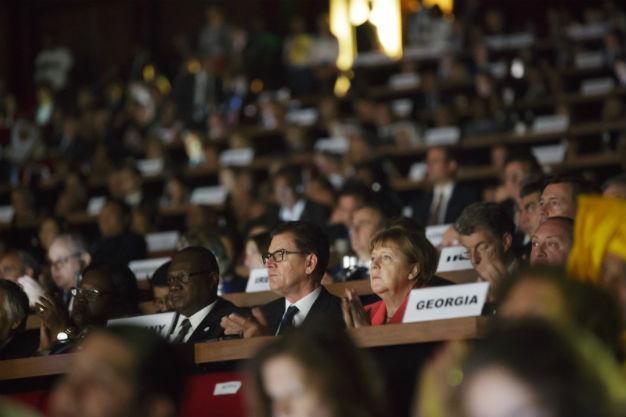German minister proposes devoting 10 pct of EU budget to refugee crisis
Deniz Çiyan – ISTANBUL
 Germany’s minister for economic cooperation and development has proposed allocating 10 percent of the European Union budget for solutions to the refugee crisis in countries that host migrants, including Turkey.
Germany’s minister for economic cooperation and development has proposed allocating 10 percent of the European Union budget for solutions to the refugee crisis in countries that host migrants, including Turkey.Gerd Müller, minister for economic cooperation and development of Germany, which is trying to cope with the more than 1 million refugees who have reached the country since the start of 2015 in the hopes of a better life, said the way to tackle this issue was to allocate around 10 percent of the EU budget with a special commissioner for the issue.
“Some 10 percent of the EU budget, which amounts to roughly 15 billion euros, should be used for infrastructure development,” Müller told the Hürriyet Daily News on May 23 on the sidelines of the United Nations World Humanitarian Summit in Istanbul.
Müller said an EU commissioner was also needed to be appointed for the usage of this fund inside the EU to find a sustainable solution to the refugee crisis.
He said this money, which he referred to as the “refugee infrastructure fund,” should be used for the infrastructure development of refugee hosting communities, which also includes Turkey among other states like Lebanon, Iraq and anywhere where the need is felt “because that’s where the needs are,” he said.
A spokesperson for Müller’s office, who spoke on condition of anonymity as he was not authorized to speak to the press, said the money collected in the fund should be used for the construction of infrastructure as “infrastructure gives them [refugees] prospective for the future.”
“Otherwise we are [giving] a bottle of water a day which is different than building a water pipeline,” the spokesperson said.
He said that just like in any other country that hosts refugees, most of the refugees in Turkey – somewhere between 85 to 90 percent – lived in cities and that was where infrastructure investments were most required.
Stating that the solution to the refugee crisis was not permitting all refugees to come to the EU, the spokesperson said Müller’s proposal worked with the aim of “going there where the refugees are,” while also investing in that place.
“Money should follow the refugees,” he said.
















